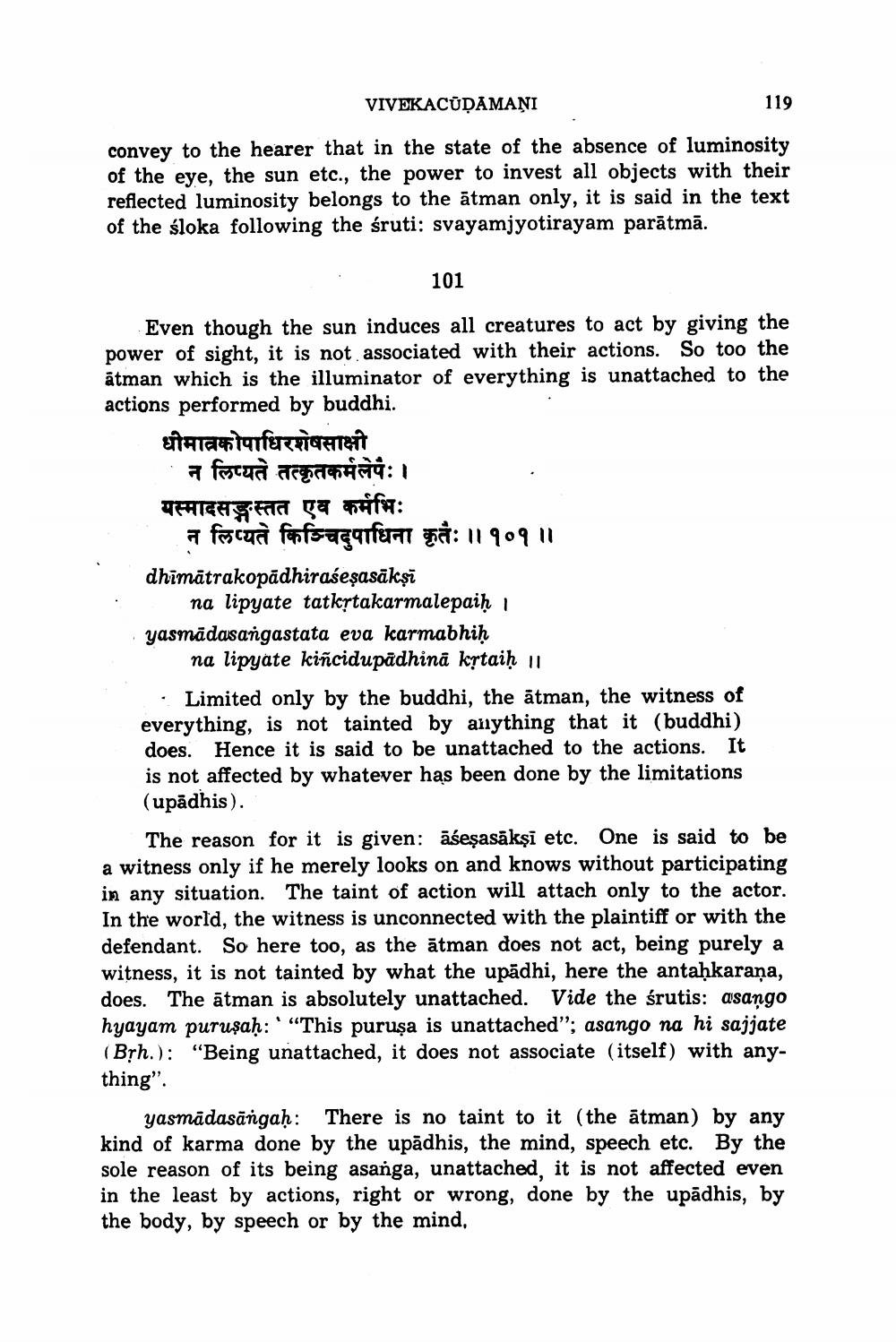________________
VIVEKACŪDAMAŅI
119
convey to the hearer that in the state of the absence of luminosity of the eye, the sun etc., the power to invest all objects with their reflected luminosity belongs to the ātman only, it is said in the text of the sloka following the śruti: svayamjyotirayam parātmā.
101
Even though the sun induces all creatures to act by giving the power of sight, it is not associated with their actions. So too the atman which is the illuminator of everything is unattached to the actions performed by buddhi.
धीमात्रकोपाधिरशेषसाक्षी - न लिप्यते तत्कृतकर्मलेपैः। यस्मादसङ्गस्तत एव कर्मभिः
न लिप्यते किञ्चिदुपाधिना कृतः॥१०१॥ dhimätrakopādhiraśeşasākşi
na lipyate tatkrtakarmalepaiḥ 1 yasmādasangastata eva karmabhih
na lipyate kiñcidupādhinā krtaiḥ 11
Limited only by the buddhi, the ātman, the witness of everything, is not tainted by anything that it (buddhi) does. Hence it is said to be unattached to the actions. It is not affected by whatever has been done by the limitations (upādhis).
The reason for it is given: āśeşasākşi etc. One is said to be a witness only if he merely looks on and knows without participating in any situation. The taint of action will attach only to the actor. In the world, the witness is unconnected with the plaintiff or with the defendant. So here too, as the ātman does not act, being purely a witness, it is not tainted by what the upādhi, here the antahkarana, does. The ātman is absolutely unattached. Vide the śrutis: asango hyayam puruṣaḥ: '“This puruşa is unattached”; asango na hi sajjate
"Being unattached, it does not associate (itself) with anything".
yasmādasāngah: There is no taint to it (the atman) by any kind of karma done by the upādhis, the mind, speech etc. By the sole reason of its being asanga, unattached, it is not affected even in the least by actions, right or wrong, done by the upādhis, by the body, by speech or by the mind,




